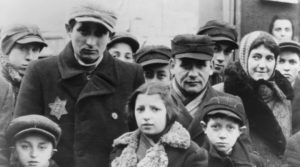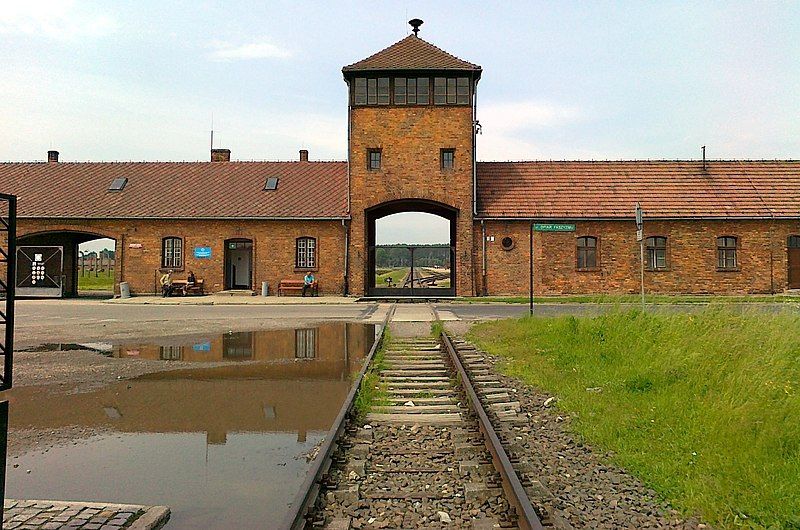Most U.S. adults know when the Holocaust happened and are familiar with Auschwitz, but fewer are cognizant about the number of Jews murdered and how Hitler came to power in Germany, according to a new American Jewish Committee (AJC) public opinion survey.

Only 53% of Americans over the age of 18 answered correctly that approximately 6 million Jews were killed in the Holocaust, while 20% explicitly said they were not sure. 2% said less than 1 million, 13% chose approximately 3 million, and 11% said more than 12 million.
The questions on Holocaust knowledge, released ahead of International Holocaust Remembrance Day on Jan. 27, are included in a larger national AJC survey of the general U.S. population on antisemitism. This survey, alongside an AJC poll of American Jews, will be available next month in AJC’s “State of Antisemitism in America” report 2022. Questions about Holocaust knowledge were asked only of the general population.
“Lacking knowledge can open pathways to trivialization and denial of the Holocaust that also contribute to rising antisemitism,” said AJC CEO Ted Deutch, whose father fought the Nazis at the Battle of the Bulge. “As we mark International Holocaust Remembrance Day, 78 years after the liberation of Auschwitz, it is imperative that Americans continue to learn about the most documented, planned genocide in modern history — the Nazi extermination of one-third of the Jewish people.”
About three-fourths (76%) of respondents knew that the Holocaust occurred between 1930 and 1950. 10% were not sure, while 1% said it was between 1890 and 1910, 10% chose between 1910 and 1930, and 2% said between 1950 and 1970.
Asked how Adolf Hitler became chancellor of Germany, 39% correctly said it was by a democratic political process, but 24% chose not sure. 34% said he came to power by violently overthrowing the German government, 1% said it was by hereditary succession, and 2% said it was by agreements with neighboring countries.
The vast majority — 85% of the respondents — accurately described Auschwitz as a concentration and death camp for Jews. Some 12% were not sure, and 1% each said it was a school to train Germans in Nazi ideology, or a political campaign designed by the Nazis, or a Jewish ghetto.
Only 26% of survey respondents answered all four questions correctly, while 30% got three correct and 25% had two correct.
Education, according to the AJC survey, is a key factor in the extent of knowledge about the Holocaust. Broadly, those who have completed higher levels of education (some college, college graduates, or more) are more knowledgeable than those who have a high school education or less. Overall, 34% of those with a college degree and 28% of those who have completed some college answered all four questions correctly, compared with just 17% of those who have a high school degree or less education.
On the question of how many Jews were killed, 42% of those with a high school degree or less education correctly answered approximately six million, compared with 62% of those who have completed at least some college and 59% of college graduates. Additionally, 76% of those who have a high school degree or less education correctly answered the question on Auschwitz, compared with 89% of those who completed some college, and 91% of college graduates.

A fifth question in the series found that 26% have visited a Holocaust Museum or memorial, while 74% have never visited. In this case, too, there is a clear pattern. Among U.S. adults with a college degree, 42% have visited a Holocaust memorial or museum, compared with 24% of those who have completed some college, and just 12% who have a high school degree or less education.
As the global advocacy organization for the Jewish people, AJC is on a mission to identify the multiple sources that contribute to rising antisemitism, like lack of knowledge about the Holocaust, and making important strides to counter it, including promoting the use of the International Holocaust Remembrance Alliance (IHRA) Working Definition of Antisemitism. The definition is a clear and compact description of antisemitism in its various forms, including Holocaust denial, prejudices against Jews, and the denial of Israel’s right to exist. AJC was involved in the original drafting of the definition more than a decade ago and continues to urge its adoption and implementation as a non-binding educational tool. Internationally recognized as the authoritative definition, it has been adopted by more than 1,000 global entities, including more than 30 countries and multilateral organizations such as the European Union and the Organization of American States. The definition sends a message that governments understand the threat, which is the obvious first step in addressing it.
The survey of U.S. adults was conducted for AJC, a nonpartisan organization, by the independent research firm SSRS. A nationally representative sample of 1,004 general population adults, ages 18 or older, was interviewed from Oct. 10 to Oct. 18, 2022. The margin of error is +/-3.8 percentage points at the 95% confidence level.
See: https://www.ajc.org/news/ajc-survey-on-holocaust-knowledge-among-americans







